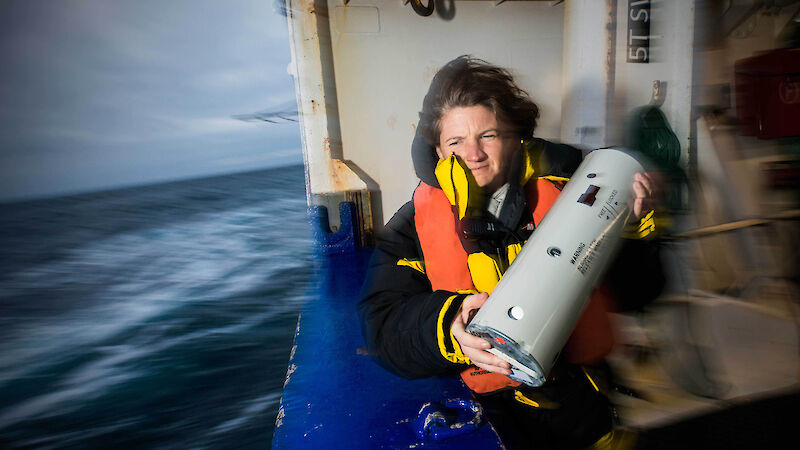On this year’s World Oceans Day, people all over our blue planet are celebrating with the theme ‘Healthy Oceans, Healthy Planet'.
Organizations and individuals around the world are promoting the prevention of plastic ocean pollution with events in their communities, special announcements, and everything in between.
At the Australian Antarctic Division, scientists are gearing up for a three month ‘Antarctic Circumnavigation Expedition’, departing in December, to investigate the impact of microplastics on the Southern Ocean food web, and use acoustic technology to survey Antarctic whales.
The international voyage, which will circumnavigate Antarctica, is a philanthropic project coordinated by the Ecole Polytechnique Fédérale de Lausanne. The voyage will visit 13 of the major island groups surrounding the Antarctic continent, including Australia’s Heard Island.
Twenty-two research projects, submitted by teams from 30 countries, were selected for the expedition and cover a spectrum of topics, including the composition of plankton, threatened animal species, the carbon cycle, microorganisms flourishing in the ocean depths and ice, and the impact of waves on the coasts.
Australian Antarctic Division ecologist, Dr Dana Bergstrom, is leading one of seven Australian projects on the voyage, to investigate free-floating and ingested microplastics.
Microplastics are generated through two major pathways — primary microplastics, such as microbeads, and secondary microplastics derived from the breakdown of larger discarded plastics.
“Millions of tonnes of plastics reach marine environments every year and while the Southern Ocean is assumed to be relatively free of pollutants, increasing quantities of plastic are washing up on subantarctic islands and on the Antarctic coastline,” Dr Bergstrom said.
“By sampling surface waters for free-floating microplastics, and looking for evidence of ingestion by zooplankton, seals and seabirds, we will investigate the extent to which microplastics have reached the Southern Ocean ecosystem and whether they have entered the food web.”
A second Australian project led by Antarctic Division marine mammal acoustician, Dr Brian Miller, will see the first circumpolar survey for Antarctic whales in a single voyage.
The project team will use acoustic technology to listen for the distinctive vocalisations of different whale species and regional populations and collect data on the distribution of Antarctic, subantarctic and sub-tropical whales. The work will contribute to the conservation and management of whale populations.

